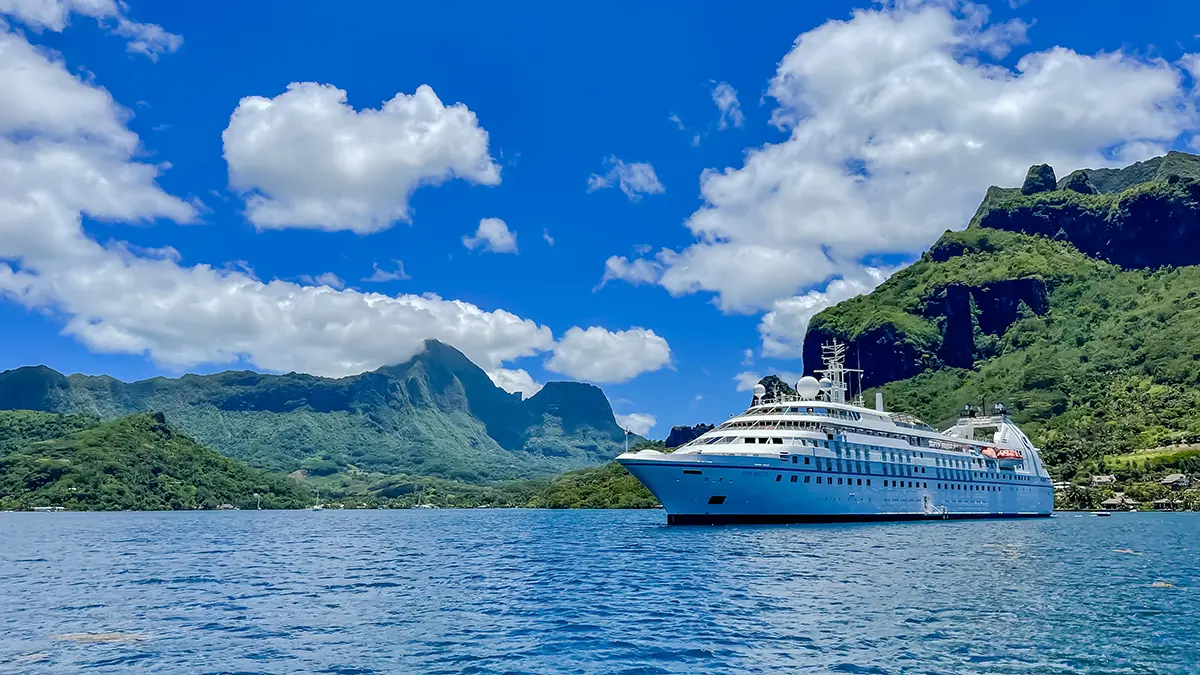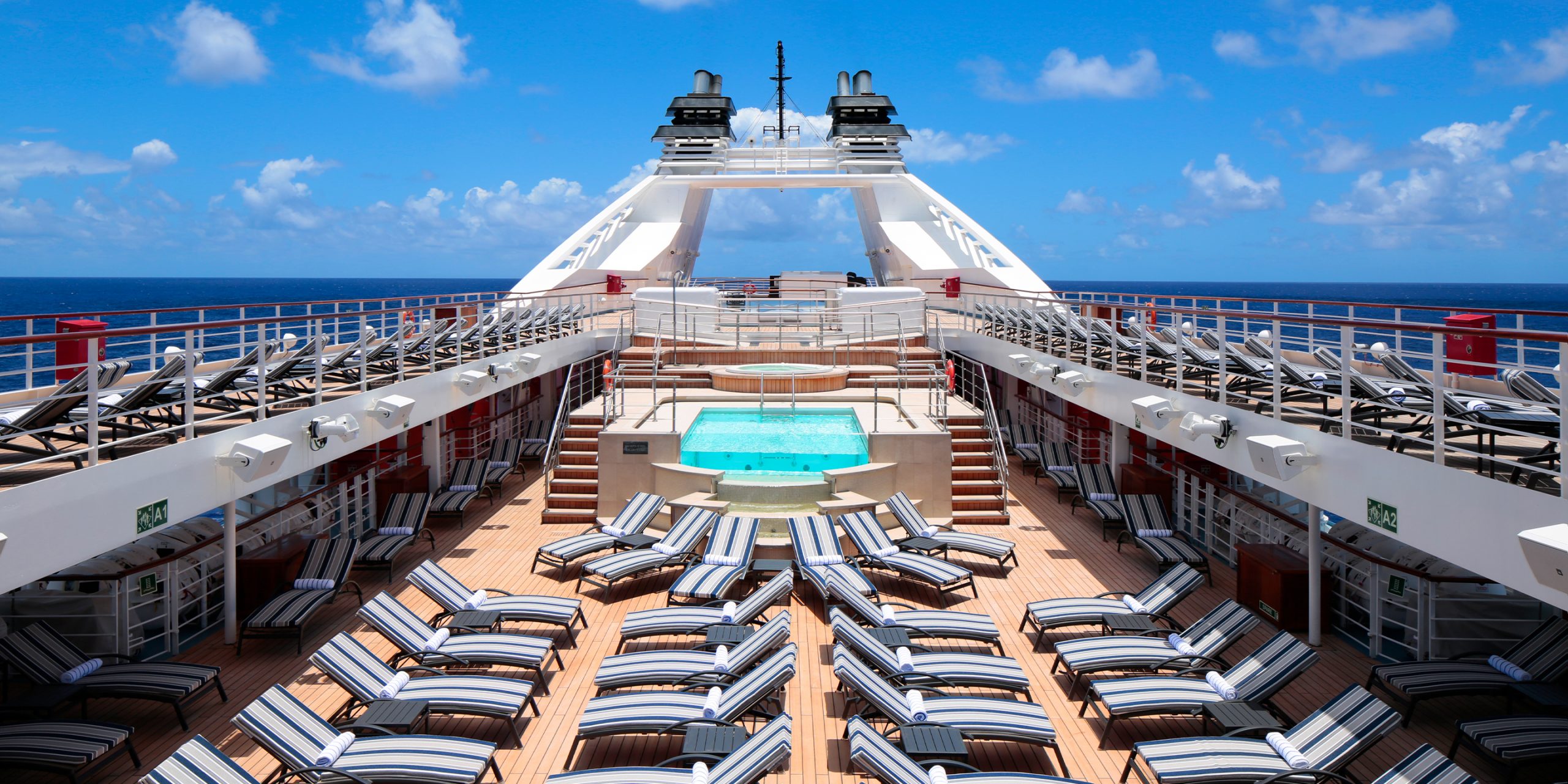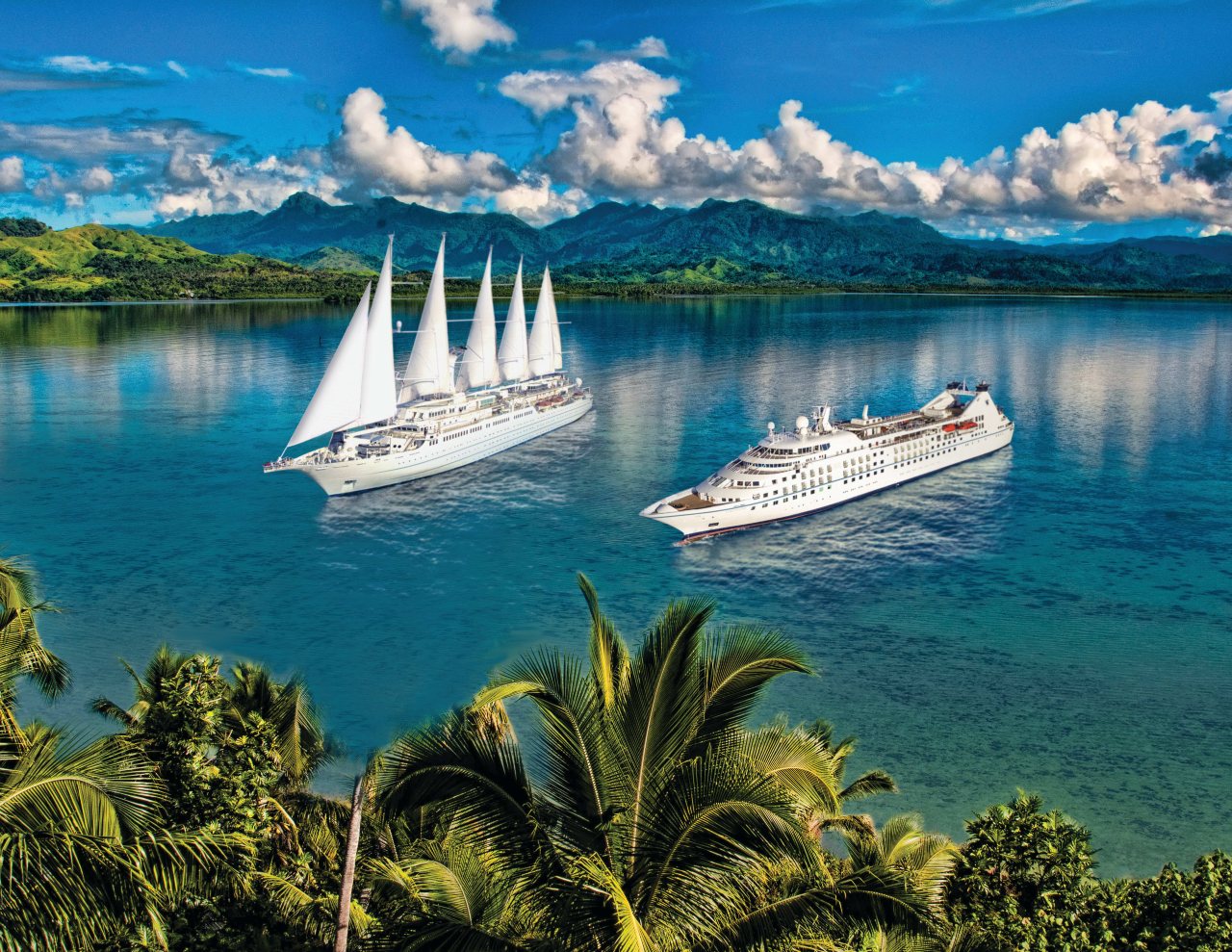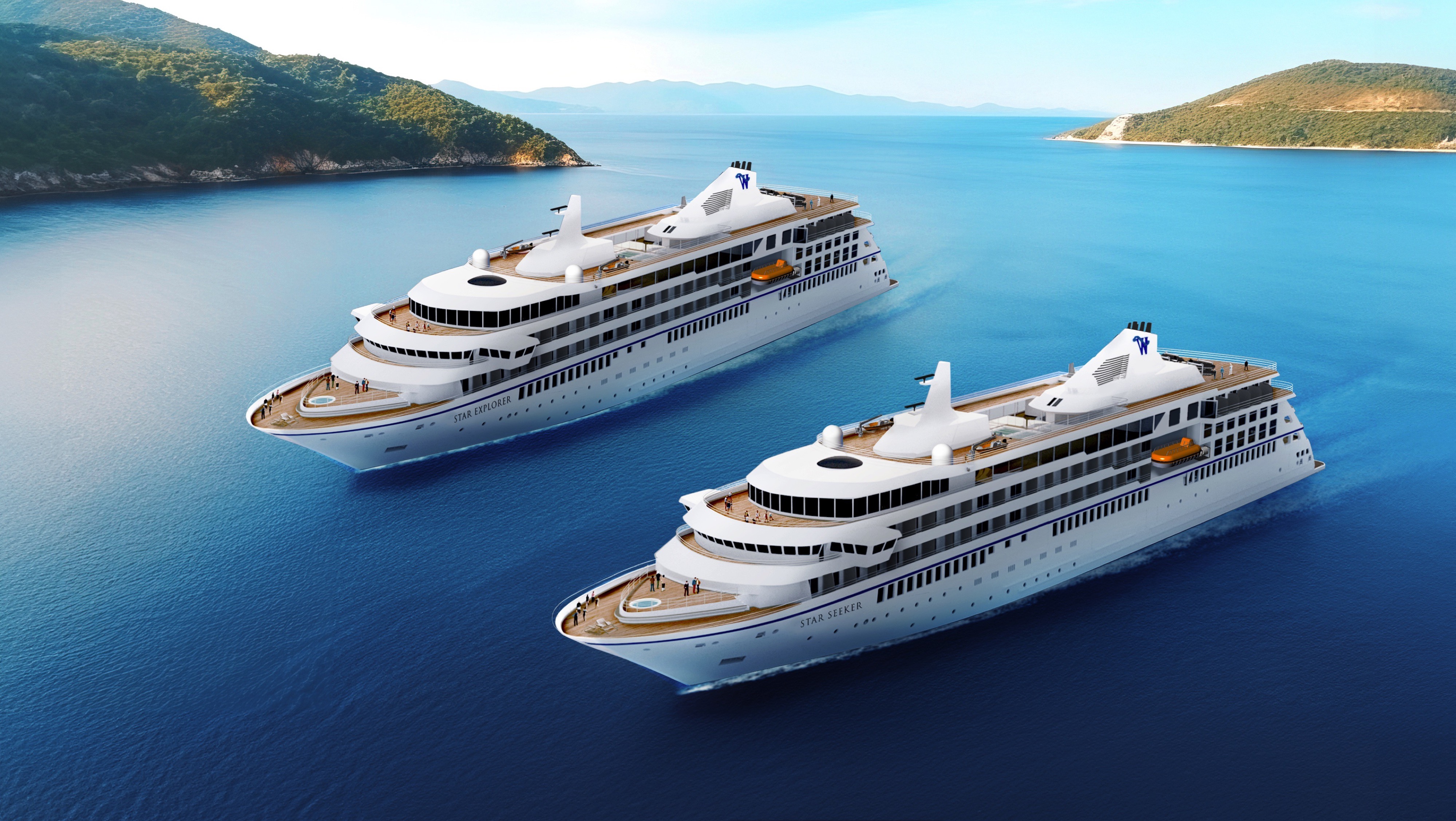Itinerary
Puerto Vallarta is a resort town on Mexico’s Pacific coast, in Jalisco state. It is known for its beaches, water sports and nightlife scene. Its cobblestone center is home to the ornate Nuestra Señora de Guadalupe church, boutique shops and a range of restaurants and bars. El Malecón is a beachside promenade with contemporary sculptures, as well as bars, lounges and nightclubs.
Day itinerary:
A popular resort town, visitors come here to relax and rest on the lovely sandy beaches or take up activities like strolling the picturesque boardwalk, horseback riding, snorkeling and boat trips. The quaint cobblestone center of Puerto Vallarta is home to boutiques, restaurants, bars and the ornate Nuestra Senora de Guadalupe church. Puerto Vallarta’s biodiversity is home to hundreds of species including orchids, birds, ocelots, jaguars and iguanas. The sea is full of wildlife as well including dolphins and humpbacks.
Seattle is a scenic seaport city in western Washington, situated on an isthmus between Puget Sound to the west and Lake Washington to the east. It is the largest city in Washington. Five pioneer families from Illinois first settled the area in 1851, and named the town after a friendly Suquamish Indian chief. It was incorporated as a city in 1869, and grew quickly after the Great Northern Railway arrived in 1893, especially during the Alaska Gold Rush of 1897. When the Panama Canal opened in 1914, Seattle became a major Pacific port of entry, and today it is the region’s commercial and transportation hub and the centre of manufacturing, trade, and finance, with an estimated 684,451 residents as of 2015.
Day itinerary:
As the 4th busiest port in the United States, evergreen Seattle is surrounded by mountains, forests and water. Home to Microsoft, Starbuck’s and Amazon, Seattle’s most recognizable icon is the Space Needle. Northwest cuisine with Asian infusion includes apples, salmon, Dungeness crab, razor clams paired with fresh microbrews and Washington wines. Among the sights to see are Pike Place Market, Chihuly Gardens, Boeing Museum of Flight, Pioneer Square, and the Ballard Locks.
Vancouver is a delicious juxtaposition of urban sophistication and on-your-doorstep wilderness adventure. The mountains and seascape make the city an outdoor playground for hiking, skiing, kayaking, cycling, and sailing—and so much more—while the cuisine and arts scenes are equally diverse, reflecting the makeup of Vancouver’s ethnic (predominantly Asian) mosaic. Vancouver is consistently ranked as one of the world’s most livable cities, and it’s easy for visitors to see why. It’s beautiful, it’s outdoorsy, and there’s a laidback West Coast vibe. On the one hand, there’s easy access to a variety of outdoor activities, a fabulous variety of beaches, and amazing parks. At the same time, the city has a multicultural vitality and cosmopolitan flair. The attraction is as much in the range of food choices—the fresh seafood and local produce are some of North America’s best—as it is in the museums, shopping, and nightlife.Vancouver’s landscaping also adds to the city’s walking appeal. In spring, flowerbeds spill over with tulips and daffodils while sea breezes scatter scented cherry blossoms throughout Downtown; in summer office workers take to the beaches, parks, and urban courtyards for picnic lunches and laptop meetings. More than 8 million visitors each year come to Vancouver, Canada’s third-largest metropolitan area. Because of its peninsula location, traffic flow is a contentious issue. Thankfully, Vancouver is wonderfully walkable, especially in the downtown core. The North Shore is a scoot across the harbor, and the rapid-transit system to Richmond and the airport means that staying in the more affordable ’burbs doesn’t have to be synonymous with sacrificing convenience. The mild climate, exquisite natural scenery, and relaxed outdoor lifestyle keep attracting residents, and the number of visitors is increasing for the same reasons. People often get their first glimpse of Vancouver when catching an Alaskan cruise, and many return at some point to spend more time here.
Day itinerary:
Vancouver’s location at the mouth of the Fraser River and on the waterways of the Strait of Georgia, Howe Sound, Burrard Inlet and all their tributaries makes this busy seaport an easy place for meeting. It is one of Canada’s most populated, most ethnically diverse cities that is a popular filming location. Visit the interesting neighborhoods of Gastown, Granville Island and Chinatown. Walk across the Capilano Suspension Bridge and stroll through Stanley Park. See the Vancouver Art Gallery and the Museum of Anthropology. There is an amazing variety of things to see and do here.
Ketchikan is famous for its colorful totem poles, rainy skies, steep–as–San Francisco streets, and lush island setting. Some 13,500 people call the town home, and, in the summer, cruise ships crowd the shoreline, floatplanes depart noisily for Misty Fiords National Monument, and salmon-laden commercial fishing boats motor through Tongass Narrows. In the last decade Ketchikan’s rowdy, blue-collar heritage of logging and fishing has been softened by the loss of many timber-industry jobs and the dramatic rise of cruise-ship tourism. With some effort, though, visitors can still glimpse the rugged frontier spirit that once permeated this hardscrabble cannery town. Art lovers should make a beeline for Ketchikan: the arts community here is very active. Travelers in search of the perfect piece of Alaska art will find an incredible range of pieces to choose from.The town is at the foot of 3,000-foot Deer Mountain, near the southeastern corner of Revillagigedo (locals shorten it to Revilla) Island. Prior to the arrival of white miners and fishermen in 1885, the Tlingit used the site at the mouth of Ketchikan Creek as a summer fish camp. Gold discoveries just before the turn of the 20th century brought more immigrants, and valuable timber and commercial fishing resources spurred new industries. By the 1930s the town bragged that it was the “salmon-canning capital of the world.” You will still find some of Southeast’s best salmon fishing around here. Ketchikan is the first bite of Alaska that many travelers taste. Despite its imposing backdrop, hillside homes, and many staircases, the town is relatively easy to walk through. Favorite downtown stops include the Spruce Mill Development shops and Creek Street. A bit farther away you’ll find the Totem Heritage Center. Out of town (but included on most bus tours) are two longtime favorites: Totem Bight State Historical Park to the north and Saxman Totem Park to the south.
Day itinerary:
Dubbed the Salmon Capital of the World, Ketchikan is the southeastern-most town in Alaska and is home to the world’s largest collection of standing totem poles that are found throughout the city and at four major locations: Saxman Totem Park, Totem Bight State Park, Potlatch Park, and the Totem Heritage Center. Other attractions of Ketchikan are Creek Street, a boardwalk road built on pilings over Ketchikan Creek and the Waterfront Promenade that skirts the bustling shoreline with inviting whale-tail benches to take in the view.
Rudyerd Bay is one of the highlights of the Misty Fiords, 40 miles east of Ketchikan, along the Inside Passage. This fjord cuts through steep-sided mountainous terrain and extends far into the mainland. The scenery is stunning, with dramatic thousand-foot waterfalls plunging down rainforest covered cliffs to the water below.
Day itinerary:
Cruising Misty Fjords/Rudyerd Bay in Alaska offers an awe-inspiring adventure through one of nature’s most pristine landscapes. Towering granite cliffs rise dramatically from mirror-like waters. The mist-shrouded environment evokes a sense of ancient mystery and tranquility, while diverse wildlife, including seals and eagles, adds to the experience. Navigating these majestic fjords provides an unforgettable glimpse into Alaska’s raw, untouched beauty, where every turn reveals a new, breathtaking vista
A small, unassuming timber and fishing community, Wrangel sits on the northern tip of Wrangel Island, near the mouth of the fast-flowing Stikine River—North America’s largest undammed river. The Stikine plays a large role in the life of many Wrangel residents, including those who grew up homesteading on the islands that pepper the area. Trips on the river with local guides are highly recommended as they provide, basically, an insider’s guide to the Stikine and a very Alaskan way of life. Like much of Southeast, Wrangel has suffered in recent years from a declining resource-based economy. But locals are working to build tourism in the town. Bearfest, which started in 2010, celebrates Wrangel’s proximity to Anan Creek, where you can get a close-up view of both brown and black bears. Wrangel has flown three different national flags in its time. Russia established Redoubt St. Dionysius here in 1834. Five years later Great Britain’s Hudson’s Bay Company leased the southern Alaska coastline, renaming the settlement Ft. Stikine. It was rechristened Wrangel when the Americans took over in 1867; the name came from Baron Ferdinand Petrovich von Wrangel, governor of the Russian-American Company. The rough-around-the-edges town is off the track of the larger cruise ships, so it does not get the same seasonal traffic that Ketchikan and Juneau do. Hence, it is nearly devoid of the souvenir shops that dominate so many other nearby downtown areas. But the gift shops and art galleries that are here do sell locally created work, and the town is very welcoming to visitors; independent travelers would do well to add a stop in Wrangel during their Southeast wanderings.
Day itinerary:
One of the oldest towns in Alaska, Wrangell is located near the mouth of the Stikine River. Much of its history can be seen in the impressive collection of totems scattered throughout the town. Highlights here are the amazing Petroglyph Beach State Historic Park where you can find primitive rock carvings and just 30 miles away is the Anan Wildlife Observatory with the largest pink salmon runs in the Inside Passage, and a platform from which you can look for eagles, harbor seals and black bears.
It’s hard not to like Sitka, with its eclectic blend of Alaska Native, Russian, and American history and its dramatic and beautiful open-ocean setting. This is one of the best Inside Passage towns to explore on foot, with St. Michael’s Cathedral, Sheldon Jackson Museum, Castle Hill, Sitka National Historical Park, and the Alaska Raptor Center topping the must-see list.Sitka was home to the Kiksádi clan of the Tlingit people for centuries prior to the 18th-century arrival of the Russians under the direction of territorial governor Alexander Baranof, who believed the region was ideal for the fur trade. The governor also coveted the Sitka site for its beauty, mild climate, and economic potential; in the island’s massive timber forests he saw raw materials for shipbuilding. Its location offered trading routes as far west as Asia and as far south as California and Hawaii. In 1799 Baranof built St. Michael Archangel—a wooden fort and trading post 6 miles north of the present town.Strong disagreements arose shortly after the settlement. The Tlingits attacked the settlers and burned their buildings in 1802. Baranof, however, was away in Kodiak at the time. He returned in 1804 with a formidable force—including shipboard cannons—and attacked the Tlingits at their fort near Indian River, site of the present-day 105-acre Sitka National Historical Park, forcing many of them north to Chichagof Island.By 1821 the Tlingits had reached an accord with the Russians, who were happy to benefit from the tribe’s hunting skills. Under Baranof and succeeding managers, the Russian-American Company and the town prospered, becoming known as the Paris of the Pacific. The community built a major shipbuilding and repair facility, sawmills, and forges, and even initiated an ice industry, shipping blocks of ice from nearby Swan Lake to the booming San Francisco market. The settlement that was the site of the 1802 conflict is now called Old Sitka. It is a state park and listed as a National Historic Landmark.The town declined after its 1867 transfer from Russia to the United States, but it became prosperous again during World War II, when it served as a base for the U.S. effort to drive the Japanese from the Aleutian Islands. Today its most important industries are fishing, government, and tourism.
Day itinerary:
Sitka is one of the oldest and most culturally significant communities in Alaska, filled with rich Tlingit, Russian, and early American settler history. Sitka is famous for its spectacular scenery, abundant wildlife, the copper-domed St. Michael’s Cathedral, the Pioneer Home and the Russian Bishop’s House. It contains 22 buildings listed on the National Register of Historic Places and is where the contract of sale was signed transferring Alaska from Russia to the United States.
Unlike most cities of Southeast Alaska, Haines can be reached by road. With a population of 2,200, Haines lies in the upper northern reaches of the Inside Passage and is an important access point to the Yukon Territory and Interior Alaska. While cruising into Haines, see the Lynn Canal, the longest and deepest fjord in North America. Once in town, mountains seem to surround you on all sides while the jagged cathedral peaks of the Chilkat Mountains loom over Fort Seward. Haines has two distinct personalities. On the north side of the Haines Highway is the section of Haines that developed around the Presbyterian mission. After its missionary beginnings, it served as the trailhead for the Jack Dalton Trail into the Yukon during the 1897 gold rush to the Klondike. South of the highway, the town resembles a military post, which is exactly what it was for nearly half a century. In 1903 the U.S. Army established Fort William Henry Seward at Portage Cove just south of town. The post (renamed Chilkoot Barracks in 1922) was the only military base in the territory until World War II. In 1939, the army built the Alaska Highway and the Haines Highway to connect Alaska with the other states. Today, the community of Haines is recognized for the Native American dance and culture center at Fort Seward as well as for its superb fishing, camping and outdoor recreation.
Day itinerary:
Haines is one of the most popular Alaska cruise ports and one of the best places for hiking, fishing and wildlife viewing, especially bald eagles. Within the Haines city limits Fort William H. Seward is a nationally recognized historic landmark, with some of its structures open to the public. Other cultural offerings in Haines include the Alaska Indian Arts Center where traditional craftsmen offer demonstrations of their work, the Sheldon Museum & Cultural Center where local Tlingit people are featured, the Hammer Museum, dedicated to the history of the hammer and the Tsirku Canning Company Museum with memories of Haines’ salmon canneries.
Juneau, Alaska’s capital and third-largest city, is on the North American mainland but can’t be reached by road. Bounded by steep mountains and water, the city’s geographic isolation and compact size make it much more akin to an island community such as Sitka than to other Alaskan urban centers, such as Fairbanks or Anchorage. Juneau is full of contrasts. Its dramatic hillside location and historic downtown buildings provide a frontier feeling, but the city’s cosmopolitan nature comes through in fine museums, noteworthy restaurants, and a literate and outdoorsy populace. The finest of the museums, the Alaska State Museum, is scheduled to reopen in May 2016 on its old site as the expanded Alaska State Library, Archives, and Museum (SLAM) following several years of planning and exhibit research. Another new facility, the Walter Soboleff Center, offers visitors a chance to learn about the indigenous cultures of Southeast Alaska–-Tlingit, Haida, and Tsimshian. Other highlights include the Mt. Roberts Tramway, plenty of densely forested wilderness areas, quiet bays for sea kayaking, and even a famous drive-up glacier, Mendenhall Glacier. For goings-on, pick up the Juneau Empire (www.juneauempire.com), which keeps tabs on state politics, business, sports, and local news.
Day itinerary:
Located on the Gastineau Channel in the Alaskan panhandle, Juneau sits at sea level below steep mountains between 3,500-4,000 feet high. Atop these mountains is the Juneau Icefield, a large ice mass from which about 30 glaciers flow, and two of them – Mendenhall Glacier and Lemon Creek Glacier are visible from the local road. A unique feature of Juneau is that it is the only U.S. capital that has no roads connecting it to the rest of the state.
Ship features
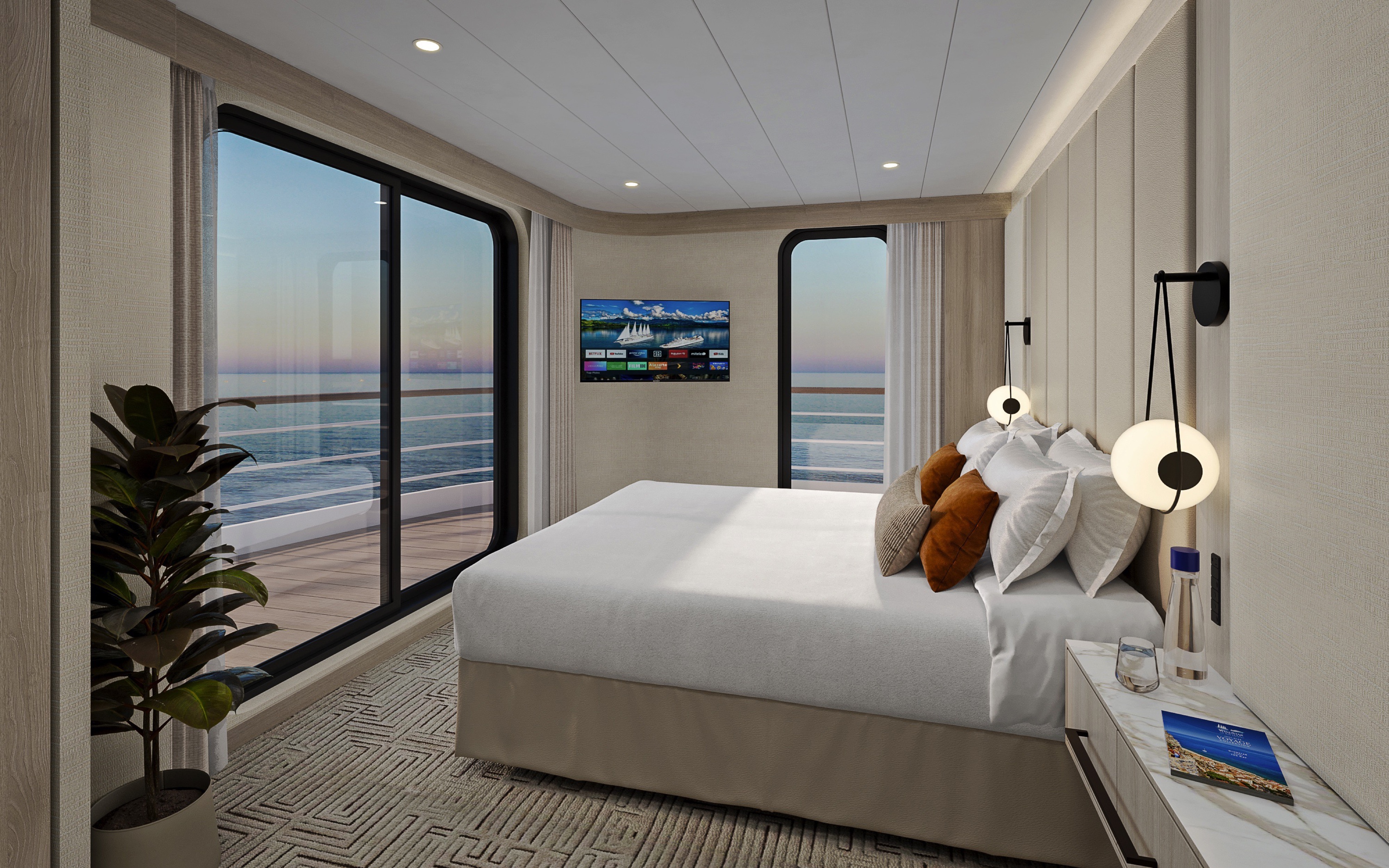
Owners Suite
This luxurious 548-square-foot suite combines floor-to-ceiling windows and a wrap-around balcony for an unparalleled cruising experience. Perfect for evening cocktails or a private dinner, the wrap-around balcony adds 248 square feet of space and offers unobstructed views of the sea. The suite boasts a separate entryway — as well as separate dining and living areas — and a guest powder room. The bedroom includes an inviting king bed (convertible into two XL twin beds if desired), and the bathroom features a luxurious double walk-in mosaic glass shower with rain head and body jets. For family bookings, the adjacent suite can be combined to provide extra bedrooms and space for entertaining.
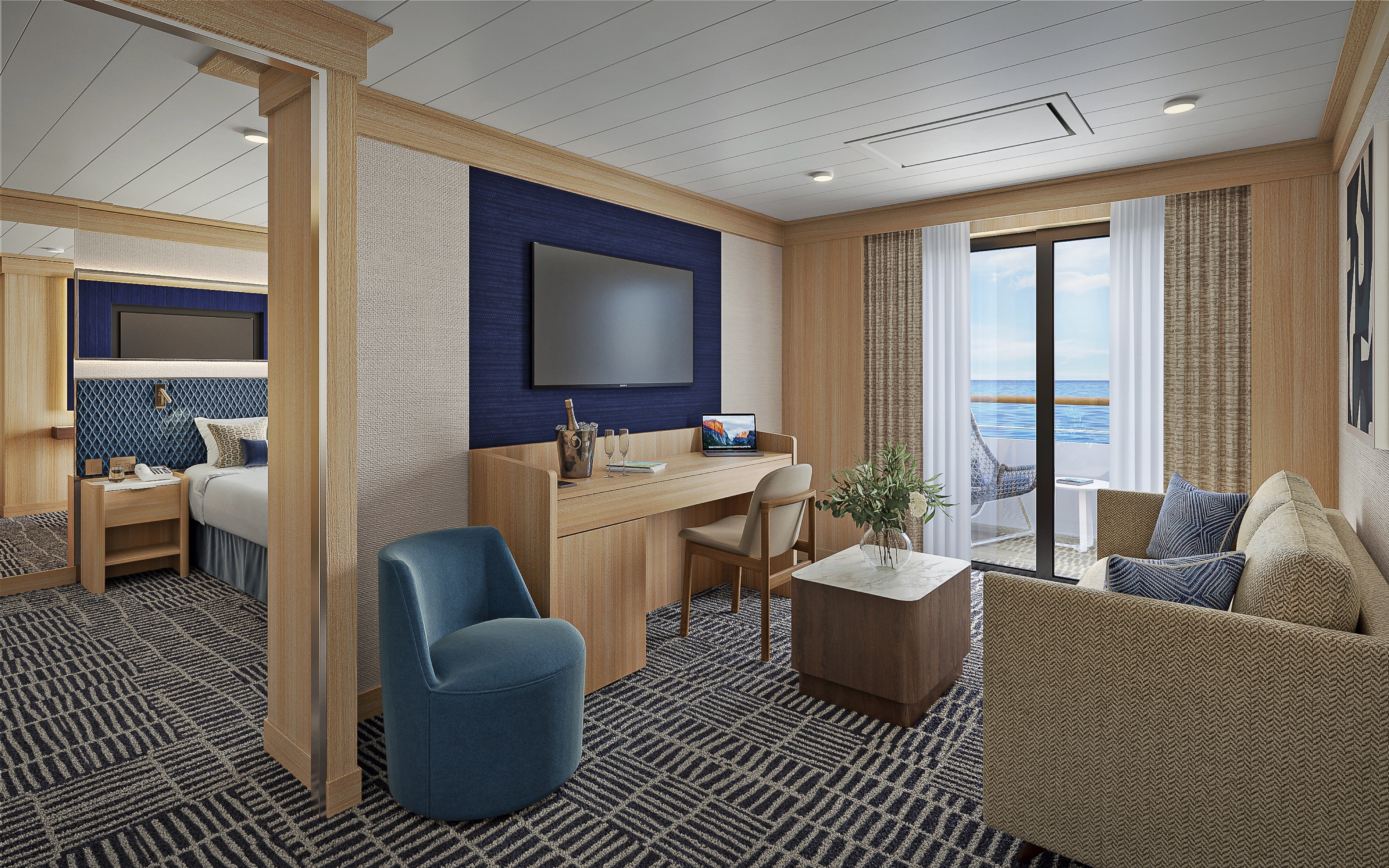
Classic Suite
Step into a stylish and bright open living area with a spacious adjacent bedroom. This 353-square-foot suite welcomes you with spectacular views, courtesy of the sliding glass doors that lead out to your private balcony. The outdoor space adds another 110 square feet, enough to sit outside comfortably and enjoy the breeze. The bedroom features an inviting queen bed that can be converted into two twins if desired, while the bathroom includes a luxurious walk-in mosaic glass shower with rain head and body jets.
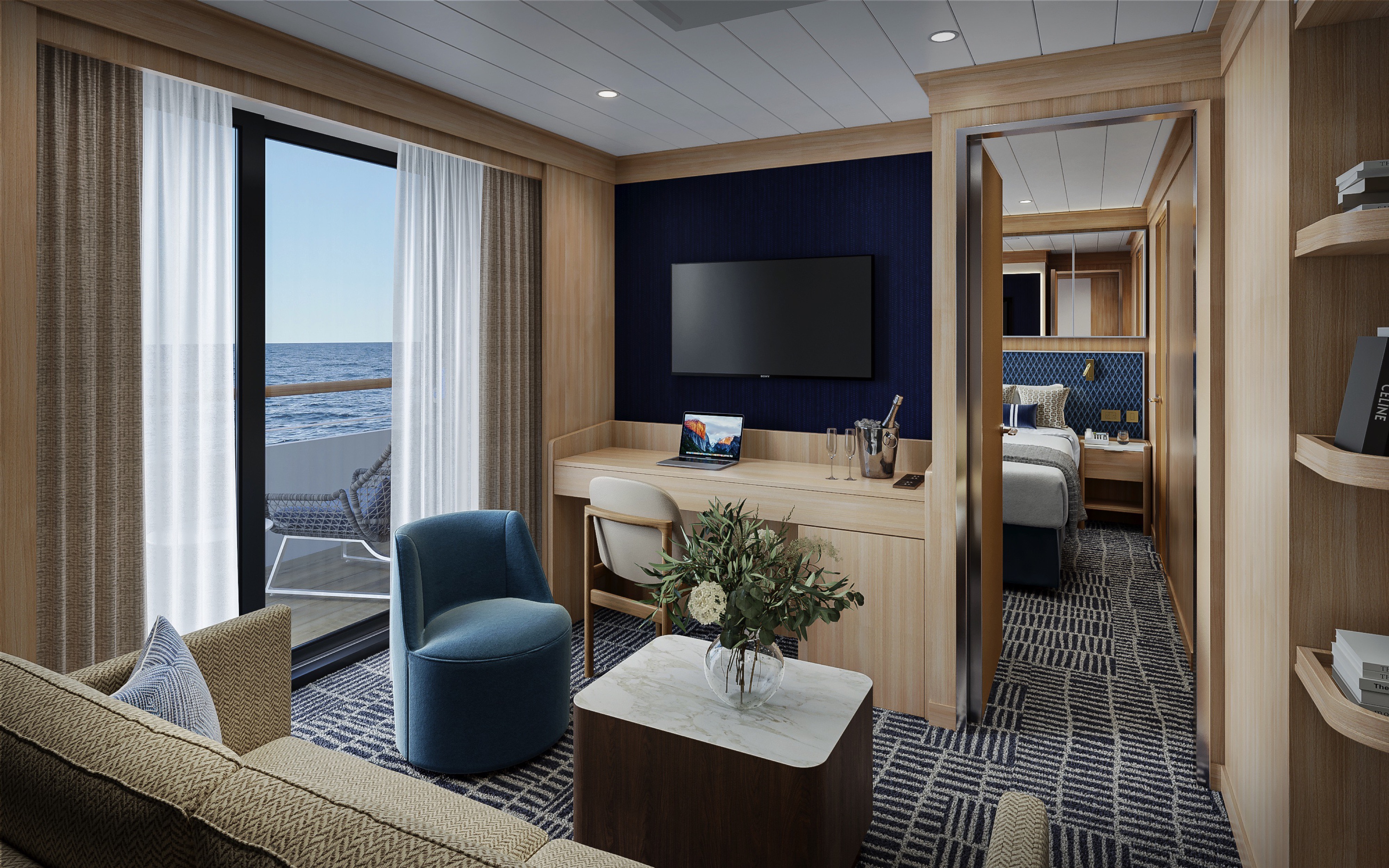
Deluxe Suite
This 288-square-foot suite welcomes you with spectacular views, courtesy of the sliding glass doors that lead out to your private balcony. The outdoor space adds another 110 square feet, enough to sit outside comfortably and enjoy the breeze. The bedroom features an inviting queen bed (convertible into two twin beds if desired) and its own sliding glass door with balcony access, while the bathroom includes a luxurious walk-in mosaic glass shower with rain head and body jets.
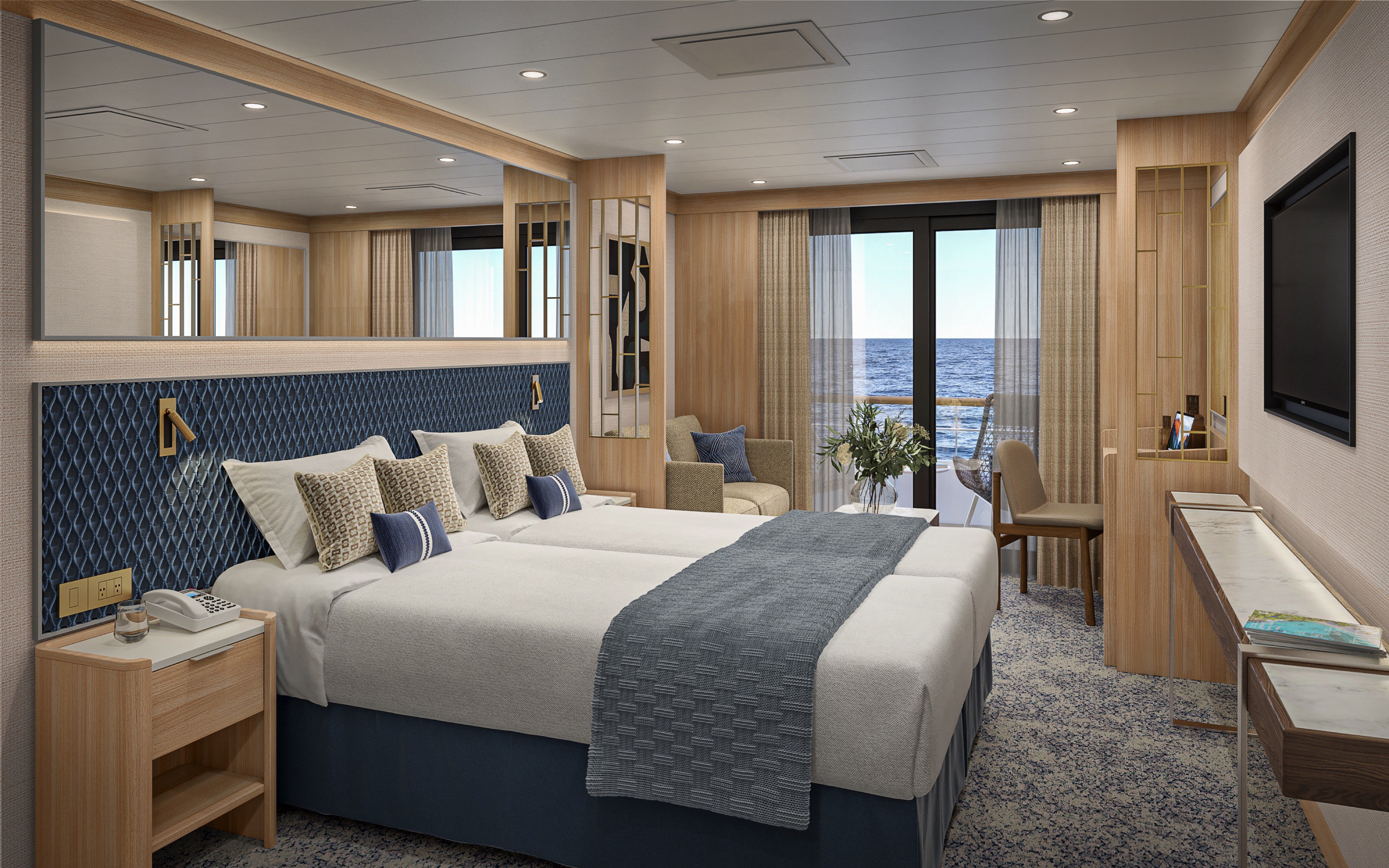
Vista Veranda Suite
Located on deck 7, this 268-square-foot suite welcomes you with stylish comfort and stunning ocean views. Relax on your queen bed (convertible into two twin beds if desired) or lounge in the nearby living area. The outdoor space adds another 55 square feet, enough to sit outside comfortably and enjoy the breeze. In the bathroom, you’ll find a luxurious walk-in mosaic glass shower with rain head and body jets.

Triple Premier Veranda Suite
Located on deck 6, this 246-square-foot suite welcomes you with stylish comfort and stunning ocean views. Featuring an inviting queen bed (convertible into two twin beds if desired) and a pull-out sofa in the living area, the suite allows for triple occupancy. The outdoor space adds another 55 square feet, enough to sit outside comfortably and enjoy the breeze. In the bathroom, you’ll find a luxurious walk-in mosaic glass shower with rain head and body jets.

Veranda Suite
Stylish comfort and ocean views welcome you to this 225-square-foot suite. Relax on your queen bed (convertible into two twin beds if desired) or lounge in the nearby living area. The outdoor space adds another 55 square feet, enough to sit outside comfortably and enjoy the breeze. In the bathroom, you’ll find a luxurious walk-in mosaic glass shower with rain head and body jets.

Premier Veranda Suite
Located at the middle of the ship, these 225-square-foot suites welcome you with stylish comfort and beautiful ocean views. Relax on your queen bed (convertible into two twin beds if desired) or lounge in the nearby living area. The outdoor space adds another 55 square feet, enough to sit outside comfortably and enjoy the breeze. In the bathroom, you’ll find a luxurious walk-in mosaic glass shower with rain head and body jets.
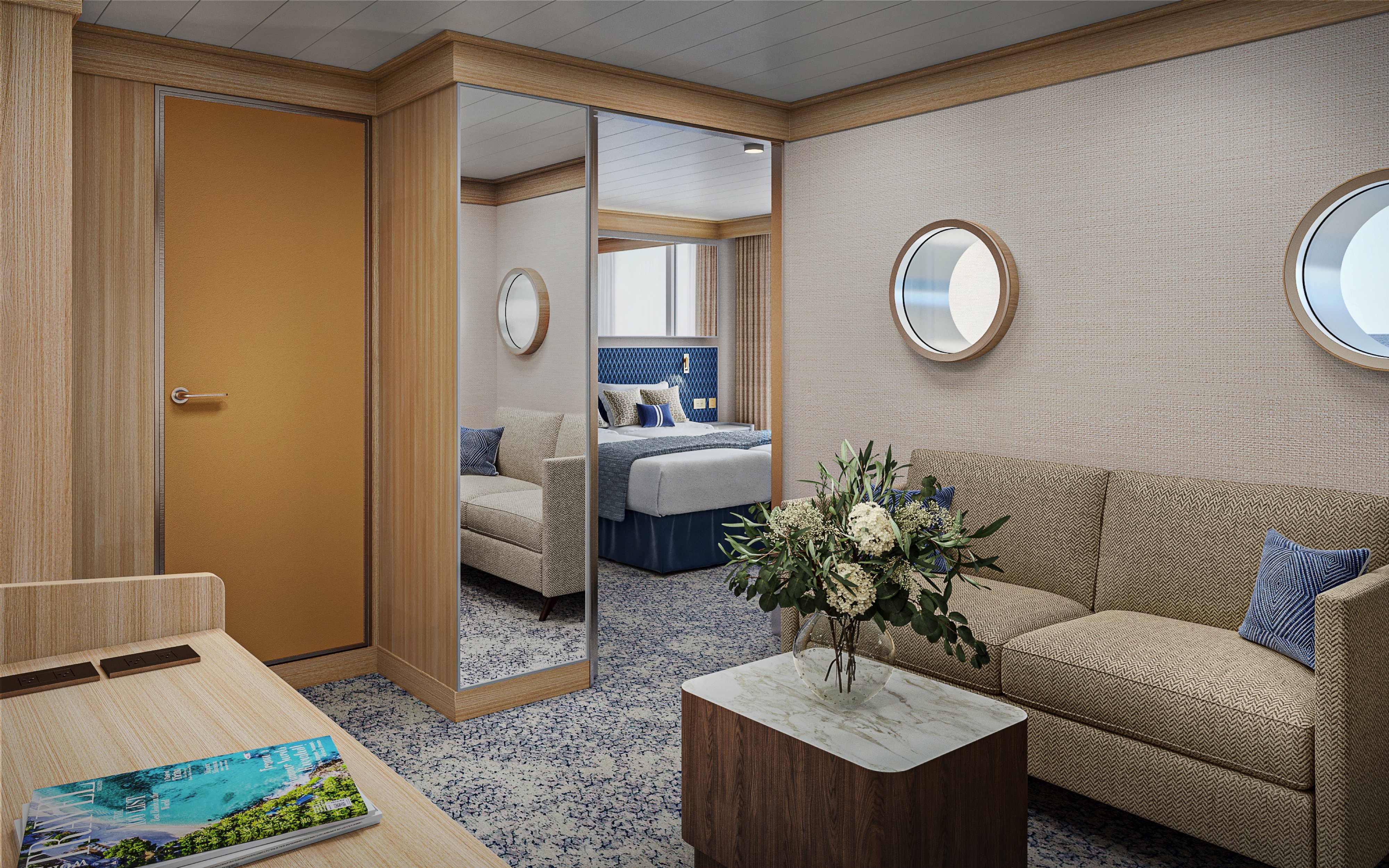
Triple Infinity Suite
This roomy 301-square-foot suite features a wide floor-to-ceiling infinity window in the bedroom, allowing for stunning ocean views. You can even open the top half to enjoy the cool ocean breeze. This suite also features an inviting queen bed (convertible into two twin beds if desired) and a pull-out sofa in the separate living area, allowing for triple occupancy. In the bathroom, you’ll find a luxurious walk-in mosaic glass shower with rain head and body jets.
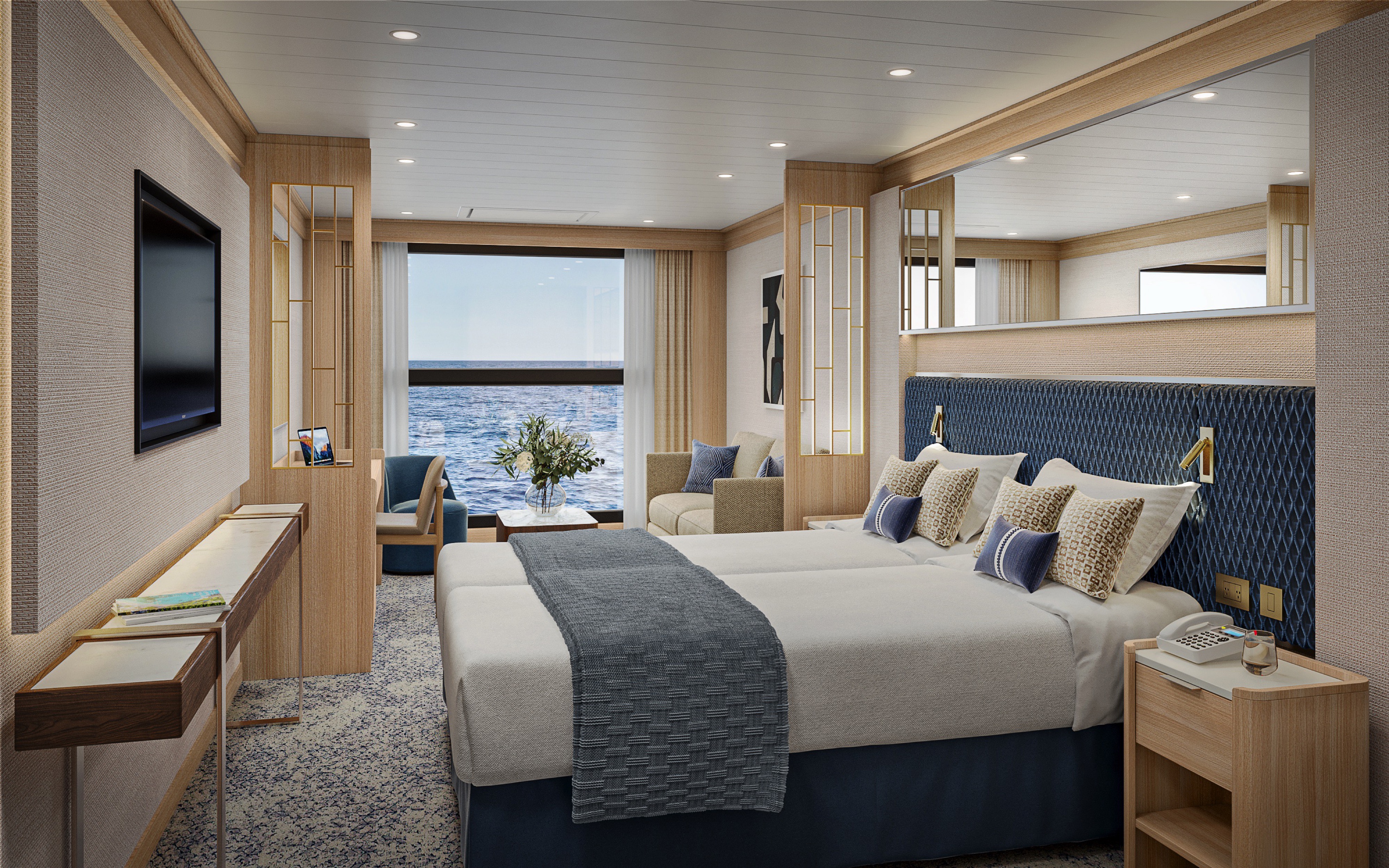
Vista Infinity Suite
Located on deck 7, this 280-square-foot suite features a wide floor-to-ceiling infinity window that allows for stunning ocean views. You can even open the top half to enjoy the cool ocean breeze. Your suite features an inviting queen bed (convertible into two twin beds if desired), a walk-in mosaic glass shower and a comfortable living area where you can lounge and enjoy the view.

Infinity Suite
This 280-square-foot suite features a wide floor-to-ceiling infinity window that allows for stunning ocean views. You can even open the top half to enjoy the cool ocean breeze. Your suite features an inviting queen bed (convertible into two twin beds if desired), a walk-in mosaic glass shower and a comfortable living area where you can lounge and enjoy the view.
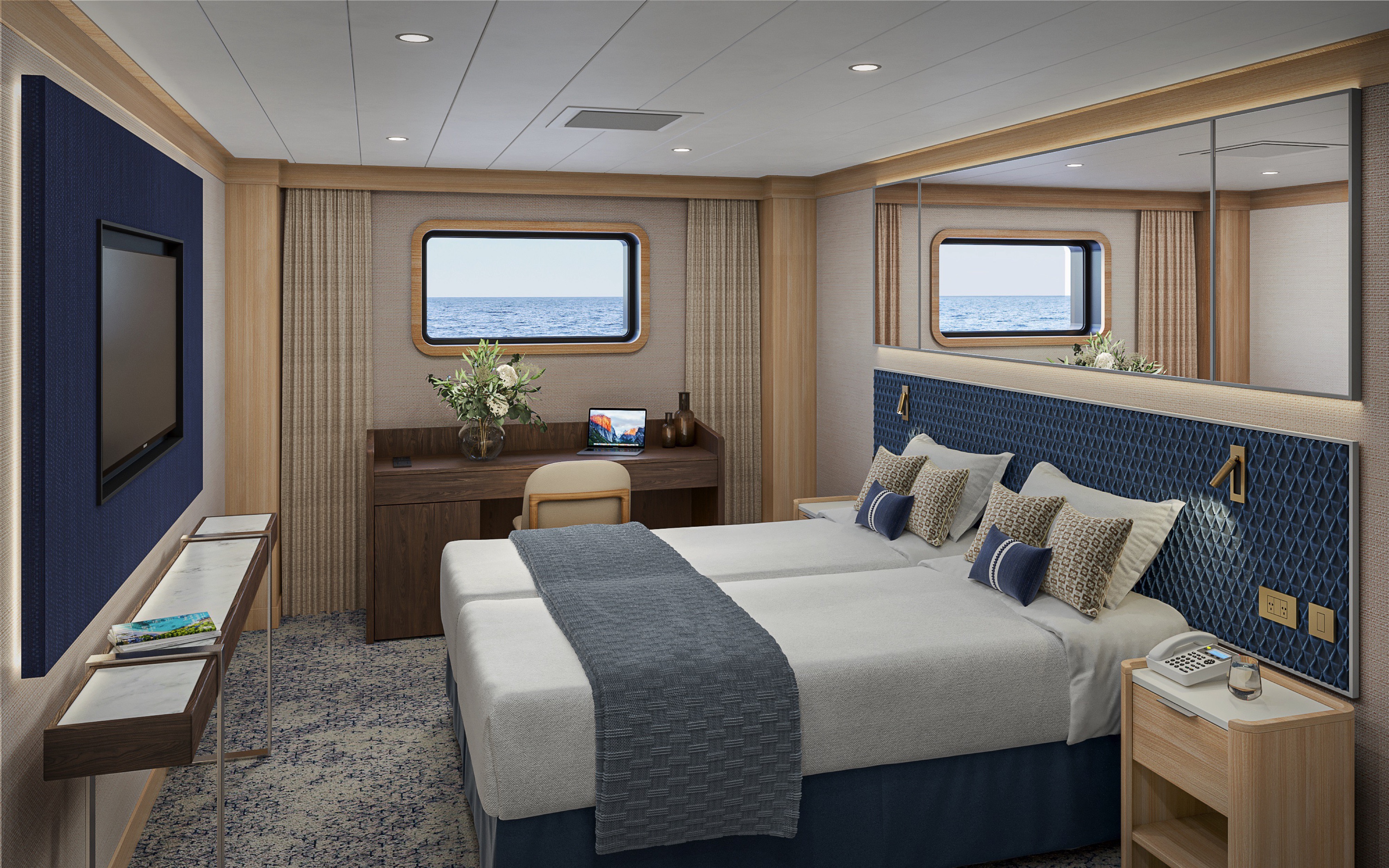
Oceanview Suite
Experience the perfect blend of style and functionality in this thoughtfully designed 203-square-foot suite. The well-planned layout creates an ideal retreat with plenty of natural light, a view of the sea, a walk-in mosaic glass shower and an inviting queen bed (convertible into two twins if desired), perfect for unwinding after a day of fun and exploration.
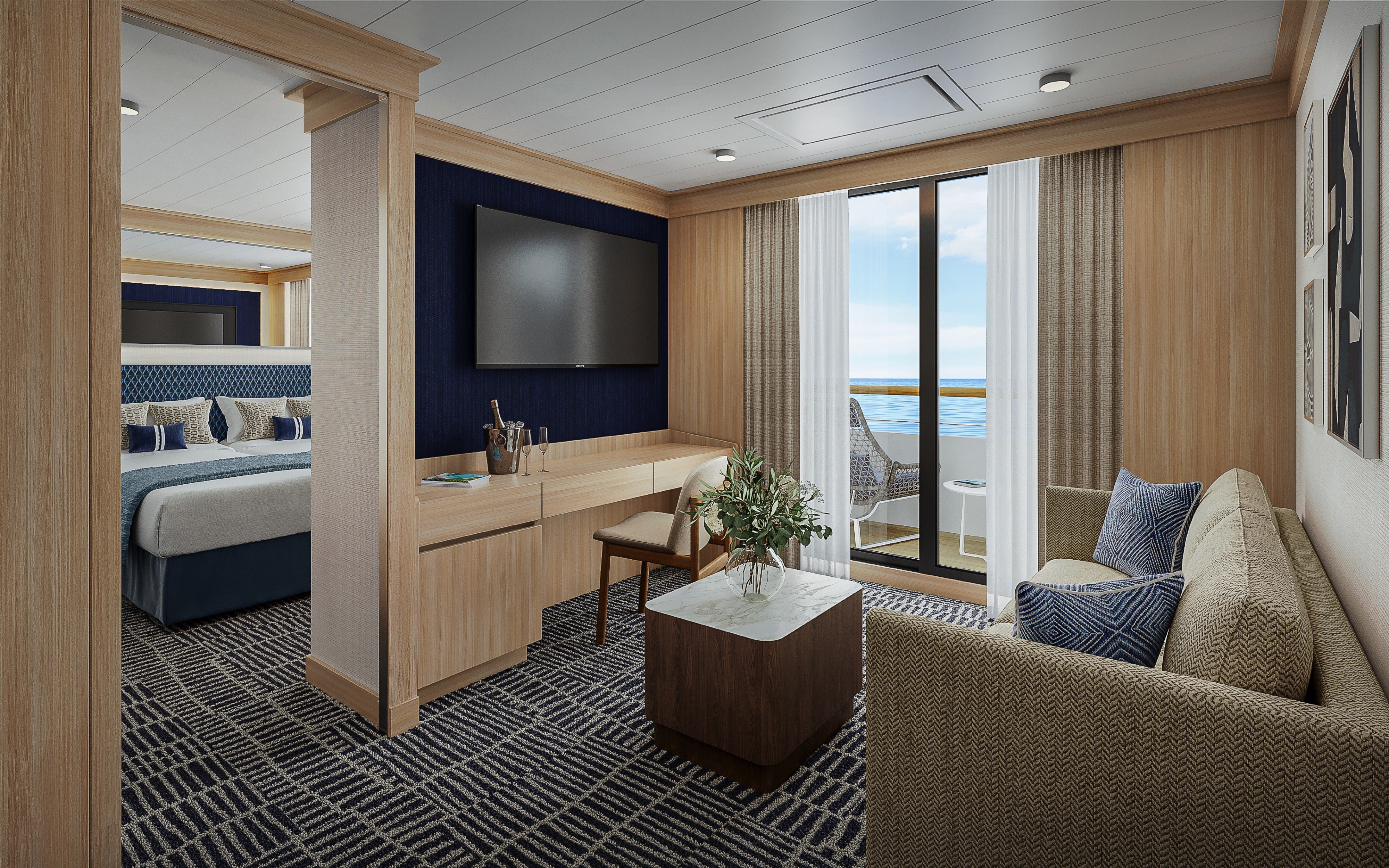
Star Suite
Step into a stylish and bright open living area with a spacious adjacent bedroom. This 380-square-foot suite welcomes you with spectacular views, courtesy of the sliding glass doors that lead out to your private balcony. The outdoor space adds another 110 square feet, enough to sit outside comfortably and enjoy the breeze. The bedroom features an inviting queen bed (convertible into two twin beds if desired) and its own sliding glass door with balcony access, while the bathroom includes a bathtub and walk-in mosaic glass shower with rain head and body jets.

Amphora
Amphora presents a contemporary, international menu and fresh local dishes.

Star Grill
You’ll find all your traditional grilled and barbecued favorites (and discover new dishes from around the world) in our casual outdoor restaurant.

Yacht Club Café
A pleasant lounge and all-day coffee bar, which is the perfect place to relax with new friends and enjoy the 270 degree views from atop the ship.

Complimentary Room Service
24-hour room service menu for in-room dining features coursed menu from the main Amphora dining room during dining hours.
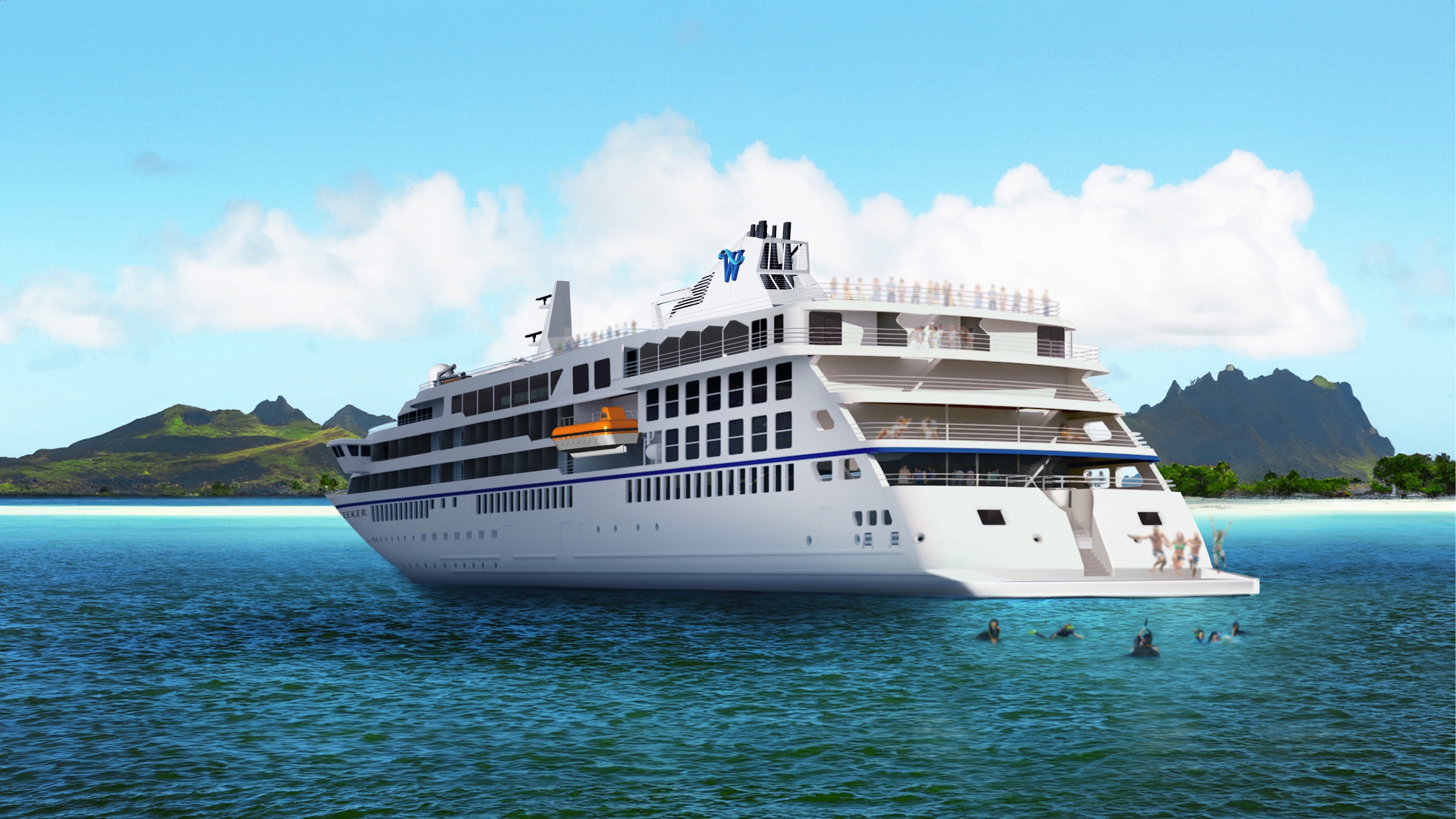
Watersports Platform
Swim directly from the yacht’s platform and enjoy complimentary snorkeling gear, paddleboards, kayaks and floatable watermats.

Open Bridge
Guests can talk with the Captain and officers on watch, view the navigational charts with the crew and enjoy one of the best views on the ship.

World Spa by Windstar
Full-service salon and spa from around the world. Offerings include massages, body treatments, facials, manicures, andpedicures.
Guests With Disabilities
Windstar does not discriminate against persons on the basis of disability. We seek, to the extent feasible, to accommodate the needs of persons with disabilities. There are no elevators on Wind Star and Wind Spirit nor were the ships originally constructed to be wheelchair accessible. As a result, these ships may be unsuitable for people relying solely on wheelchairs. The other yachts are equipped with elevators, but staterooms on Wind Surf are not wheelchair accessible. Also note, there is no elevator access to board the ship. Star Pride, Star Breeze, and Star Legend have modified wheelchair accessible suites available.
Certain ports require the ship to anchor; in this case guests must be ferried into port. Service Dogs are permitted onboard ships if prior arrangements have been made at time of booking. In limited situations where an individual with a disability would be unable to satisfy certain specified safety and other criteria, even when provided with appropriate auxiliary aids and services, we may find it necessary to ask the individual to make alternative travel arrangements. It is essential that Windstar is notified of any special medical, physical or other requirements you may have at the time of booking.
Passengers Under 21
Windstar Cruises is unable to accommodate children under eight (8) years of age. All Guests under 21 years of age must be accompanied by a parent, guardian or chaperone who is at least 21 years old. Parents, guardians, and chaperones are responsible for overseeing the onboard conduct of minors. Alcoholic beverages will not be served to guests under age 21.
For family groups booking multiple staterooms, the minimum age for at least one person in each stateroom is 18 years of age, provided they are traveling with a parent, guardian or chaperone.
Dress Code
The less you bring the better. We suggest clothes that are light, cool, and made of natural fabrics like cotton and silk. You may wish to bring warmer clothing (layers are best), if you are traveling on an Ocean Crossing or an autumn Mediterranean cruise.
The Dress Code – from 7 am – 6 pm guests are welcome to dress as they please with the exception of no swimwear in all public lounges and restaurants and no clothing with offensive language or graphics that distract from the comfort and well-being of others. The general shipboard style is elegant, but relaxed including jeans and Bermuda/ walking shorts.
In the evening – after 6 pm when dining in Amphora, Stella Bistro or Cuadro 44 by Anthony Sasso, the dress code is country club-type clothing. For men – nice slacks, polo shirts, button down shirts, shoes other than athletic shoes. Designer denim jeans without rips or holes or are multi-coloured are also acceptable. Sport coats are optional. Ties are not needed. For women – nice pants, skirts, tops, casual dresses, sundresses, nice sandals or casual shoes and designer denim dress jeans not ripped or multi-coloured or having holes. Blazers are optional.
No assigned seating in Amphora or Veranda restaurants. And what can be more casual than merely signing for onboard purchases? You will feel like this is your ship, your personal yacht. The environment inspires the attitude. Reservations are required for Candles and can be made on board.
For those guests traveling to Alaska, it’s important to wear the right gear. We have partnered with the leading expedition outfitter to offer an online Alaska clothing and accessories service that ships directly to your ship. You’ll find all the right gear for Alaska, packing lists, clothing tips and our limited-edition Alaska inaugural season jacket here..
Smoking Policy
Smoking or vaping is not permitted in any of the staterooms, suites, or public spaces, including all restaurants and corridors. Smoking and vaping is permitted on the outside decks in designated smoking areas only. Smoking cigars is permitted in a specific designated area on each yacht, however, only sold on board the Cigar Room of Wind Surf.
Internet
Windstar Cruises offers full internet capabilities, depending on course and position of the ship, as well as wireless internet service on all ships. Wi-Fi access is possible in most public areas, staterooms, and suites.
The Email Plan $60
This plan gives you 200 MB of data to use during your cruise. This plan is recommended for people who will be checking email and doing very limited browsing. The estimated minutes range from 15 to 60.
The Surfing Plan $120
This plan gives you 500 MB of data to use for additional browsing and small file transfers (such as posting pictures to a social media site). The estimated minutes range from 90 to 360 (approximately 5 hours).
The Ultimate Plan –
Unlimited Internet Package
-7 Day Cost $245
-8 Day Cost $280
-9 Day Cost $315
-10 Day Cost $350
-11 Day Cost $385
-14 Day Cost $490
-15 Day Cost $525
This plan gives you unlimited internet access. You have no worries about how much time you spend on the internet.
How can I get internet access on board?
Guests can purchase Internet Usage Plans prior to their cruise through a Vacation Planner or on board at Reception. These plans can be used on personal laptops or smart devises that are Wi-Fi enabled.
* Please Note: All packages only allow for one device at a time to be connected to the internet.
Laundry
Laundry service is provided on board at a nominal charge. Dry cleaning is not available. Laundry Service Packages must be added by the first day of the cruise and will be priced by the total number of cruise days. Pricing is inclusive of applicable taxes.
Service Dogs
Animals or pets are not allowed with the exception of qualified Service Dogs for guests with disabilities. Please notify your travel professional at time of booking if you intend to board with a Service Dog.
What is a Service Dog?
At Windstar Cruises a Service Dog is defined as a dog that is personally trained to do work or perform tasks for the benefit of a guest with a disability. There are many different acceptable conditions for using a service dog such as guiding a blind person, pulling a wheelchair, or alerting and protecting a person who is having a seizure, and other special tasks as defined in Title III of the Americans with Disabilities Act (ADA). A Service Dog is not a pet.
Are pets, Service Dogs in Training or Emotional Support Dogs considered Service Dogs?
No. Service Dogs do not include pets or Service Dogs in Training. Nor are Emotional Support Dogs considered Service Dogs based on a decision by the U.S. Department of Justice. None of these animals will be able to sail with Windstar Cruises.
What do guests need to do to meet the requirements to bring a Service Dog on board a Windstar yacht?
- Allow at least a year of planning in order to get a Service Dog certified, especially if the guest is visiting more than one country.
- Contact the embassy or consulate of the country(ies) they will be visiting for information on the policies and requirements of the country.
- Contact the Department or Ministry of Agriculture in their destination country (including U.S. travel) as many ports of call have strict entry requirements for animals.
- Obtain health and rabies certificates from their veterinarian. Have these documents notarized and certified by the U.S. Department of Agriculture or Similar authority in residing country.
- Obtain a good health letter from their veterinarian on letterhead stating their Service Dog is in good health and current on all vaccines.
- Obtain a letter from their personal physician also on letterhead, stating that they require the assistance of a Service Dog and for what reason(s).
- Outfit their Service Dog with recognizable gear as a way to let people know that their dog is an official Service Dog. For example a jacket or vest or guide dog-type harness with words on the side like Service Dog or Guide Dog.
- Make sure they hand carry all these documents, not pack them in their luggage. They will be asked to submit these records prior to boarding.
- All guests traveling with service animals must book at least 60 days in advance to allow time for Windstar Cruises to review documents and approve the Service Dog request in writing.
What additional information do guests need to know?
- Only one Service Dog can be accommodated per (suite/stateroom) or (person).
- The dog’s breed and the size restrictions of our ships may limit the Service Dogs we can accept.
- A sand/ relief box will be provided.
- Windstar Cruises will do our best to assist guests and they should contact our Reservation Department at 1-877-203-5279 to make sure both they and Windstar Cruises have all the additional information needed.
What happens on board?
- Service Dogs are permitted to accompany guests with a disability in all public areas, including dining venues.
- Service Dogs must be on a leash, harness or other restraining device in public areas.
- Service Dogs are not permitted in pools, whirlpools or spas.
- The care and supervision of Service Dogs is the sole responsibility of the owner. Ships are not required nor do they have the capacity to provide food or care for Service Dogs.
- Owners may bring a reasonable quantity of food and bowls for their Service Dog at no additional charge.
- If a guest wishes to disembark at a port that does not allow their Service Dog, the guest must make arrangements for the dog on board to ensure the dog is cared for. The ship’s staff is not able to care for the dog and the Service Dog may not be left unattended in the guest’s suite/stateroom.
- Owners of Service Dogs are responsible for the behavior or damage caused by their Service Dog. A cleaning fee may be assessed if necessary.
- If a Service Dog’s behavior creates a distraction, such as growling, barking excessively, initiating unsolicited contact, biting, failing to use the designated relief area, sitting on furniture, eating from the table, etc., the dog may be denied boarding or removed from the ship along with the owner, at the owner’s expense.
Packing Advice
The less you bring the better. We suggest clothes that are light, cool, and made of natural fabrics like cotton and silk. You may wish to bring warmer clothing (layers are best), if you are traveling on an Ocean Crossing or an autumn Mediterranean cruise.
The Dress Code – from 7 am – 6 pm guests are welcome to dress as they please with the exception of no swimwear in all public lounges and restaurants and no clothing with offensive language or graphics that distract from the comfort and well-being of others. The general shipboard style is elegant, but relaxed including jeans and Bermuda/ walking shorts.
In the evening – after 6 pm when dining in Amphora, Stella Bistro or Cuadro 44 by Anthony Sasso, the dress code is country club-type clothing. For men – nice slacks, polo shirts, button down shirts, shoes other than athletic shoes. Designer denim jeans without rips or holes or are multi-colored are also acceptable. Sport coats are optional. Ties are not needed. For women – nice pants, skirts, tops, casual dresses, sundresses, nice sandals or casual shoes and designer denim dress jeans not ripped or multi-colored or having holes. Blazers are optional.
No assigned seating in Amphora or Veranda restaurants. And what can be more casual than merely signing for onboard purchases? You will feel like this is your ship, your personal yacht. The environment inspires the attitude. Reservations are required for Candles and can be made on board.
Medical Facilities, Infants, and Pregnancy Policy
A doctor and limited medical facilities are available on board. However, if you take special medications, please bring an adequate supply with you together with a copy of the prescription from your doctor; it may not be available on board. Medical services and all medicines (except acetaminophen, aspirin, and seasickness pills) dispensed by the ship’s doctor will be charged to your onboard account. If you become ill during the voyage and the physician is unable to care for your needs on board, you will be transferred to medical facilities on shore. Shoreside medical care and/or evacuation are not charged to your onboard account. You will be responsible for paying all of these charges.
If you will require a special medical apparatus or assistance on board or have any special medical, physical or other requirements, please contact our Vacation Planners Department at 1-888-260-6159. Due to limited medical facilities, we will not accept reservations for children under 8 years of age or women who are 24 or more weeks pregnant at the time their travel with Windstar concludes.
Food Allergies and Special Dietary Needs
Here at Windstar we are committed to offering our guests healthy food selections. We offer vegetarian selections and lighter fare options, seeking to provide the freshest, top quality foods handled with the utmost care. If you have food allergies or special dietary needs, there are several ways to notify us prior to boarding the ship.
It’s important to let us know about your special request when you book your cruise to help us plan and prepare for your meals. Your travel professional will enter this information in Special Requests. It is then noted on your booking and your ship will be notified, although it will not appear on your invoice or in My Windstar.
Special Request Dietary Needs include:
- Alcohol Free
- Celiac
- Dairy Free
- Diabetic – Diet Controlled
- Diabetic – Insulin Controlled
- Food Allergy
- Gluten Free
- Lactose Intolerant
- Low Carbohydrate
- Low Cholesterol
- Low Protein
- Low Sodium
- Other Dietary
- Sugar Free
- Vegan
- Vegetarian
- Wheat Free Diet
Unfortunately we are unable to accommodate Kosher or Halal meals. If you have specific dietary needs– such as – lactose intolerant requiring almond milk – please complete a Special Requirements Information Form. Return this information via:
- Mail to Windstar Vacation Planning at 8400 NW 36th St. Suite 520, Miami, FL U.S.A. 33166
- Fax to 786-685-3089
- Call 1-888-260-6159 to speak with a Vacation Planner in person
- Send an email to info@windstarcruises.com
When you embark the ship please feel free to ask to speak with the Executive Chef about your specific request.
Dining with Windstar
BREAKFAST
It is 7:30 in the morning and you awake to hear the gentle trade winds, and smell the freshly brewed Colombian coffee and buttery croissants that lure you topside to Veranda. It’s breakfast alfresco, full service or buffet-style, anytime till 9:30 a.m. No need to hurry. Or if you prefer, linger over a continental breakfast served in the privacy of your stateroom or suite. Whichever is fine with us. After all, this is what the good life is all about: doing what you please, when you please.
LUNCH
Again, the choices are many in Veranda. Choose the sumptuous, seemingly endless buffet. Or, order from the lunch menu. Please refer to your onboard Daily Program for specific times.
DINNER
In the evening, we turn the spotlight to our elegant Amphora restaurant. Here, the dining room manager seats you, but where is your decision. There are no pre-assigned tables or first or second seatings. Or try the romantic candelight atmosphere of Candles. When you dine and with whom are entirely up to you. Reservations are required for Candles and can be made on board. Dinner time will be printed in the ship’s daily program.
If you’re dining in Amphora, Stella Bistro, or Cuadro 44 by Anthony Sasso in the evening, slacks or non-distressed jeans are appropriate, paired with collared, button-down or polo shirts, or fashion tops or blouses. Skirts with nice tops, casual dresses and sundresses are also good choices. Dress shoes, nice sandals or stylish athletic casual shoes round out your evening wardrobe. Depending on your destination you may wish to pack shorts, hats, flip flops and t-shirts, but please reserve them for your daytime activities.
The cuisine is exquisite … a unique creation of light and savory entrees using fresh native foods and tropical accents. What will it be? Pear and goat cheese salad with prosciutto? Roasted eggplant and garlic soup? Grilled ahi tuna with Asian vegetables and a ginger pink peppercorn sauce? Or perhaps a mocha and chocolate terrine with almond sauce? To all this, we add a fine selection of vintage wines.
IN-ROOM DINING
If you decide you’d like to dine in your stateroom or suite menus are available 24 hours a day. Breakfast menu from 6 – 11 a.m., lunch from noon – 10 p.m., dinner menu from Amphora served during their open hours and an overnight menu available 10 p.m. to 6 a.m.
The Dress Code – from 7 am – 6 pm guests are welcome to dress as they please with the exception of no swimwear in all public lounges and restaurants and no clothing with offensive language or graphics that distract from the comfort and well-being of others. The general shipboard style is elegant, but relaxed including jeans and Bermuda/ walking shorts.
In the evening – after 6 pm when dining in Amphora, Stella Bistro or Cuadro 44 by Anthony Sasso, the dress code is country club-type clothing. For men – nice slacks, polo shirts, button down shirts, shoes other than athletic shoes. Designer denim jeans without rips or holes or are multi-colors are also acceptable. Sport coats are optional. Ties are not needed. For women – nice pants, skirts, tops, casual dresses, sundresses, nice sandals or casual shoes and designer denim dress jeans not ripped or multi-colored or having holes. Blazers are optional.
No assigned seating in Amphora or Veranda restaurants. And what can be more casual than merely signing for onboard purchases? You will feel like this is your ship, your personal yacht. The environment inspires the attitude. Reservations are required for Candles and can be made on board.

Deck 8
- Elevator

Deck 7
- Elevator
- Yacht Club (1)
- Pool and Whirlpool (2)
- Star Grill (3)
- Star Bar (4)
- Oceanview Suite
- Vista Veranda Suite
- Vista Infinity Suite

Deck 6
- Elevator
- Whirlpool (6)
- Infinity Suite (1x Accessible)
- Triple Infinity Suite
- Premier Veranda Suite
- Deluxe Suite
- Star Suite
- Horizon Owner’s Suite

Deck 5
- Spa Entrance
- Elevator
- Whirlpool (6)
- Infinity Suite
- Classic Suite
- Premier Veranda Suite
- Star Suite
- Deluxe Suite
- Veranda Suite

Deck 4
- Embarkation
- Elevator
- World Spa by Windstar (7)
- Lounge (8)
- Medical Facility (9)
- Reception (10)
- Destination Desk (11)
- Fitness Center and Motion Studio (12)
- Star Boutique (13)
- Specialty Restaurant (14)
- Amphora Restaurant (15)

Deck 3
- Tender Embarkation
- Elevator
- Watersports Platform (16)
- Oceanview Suite
